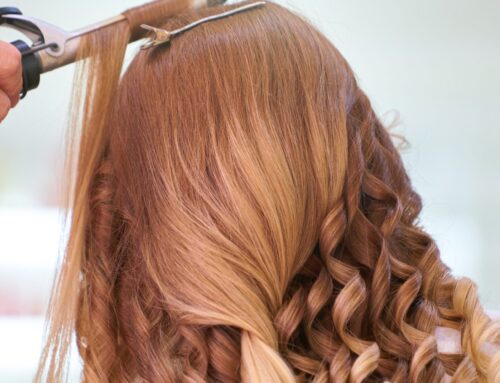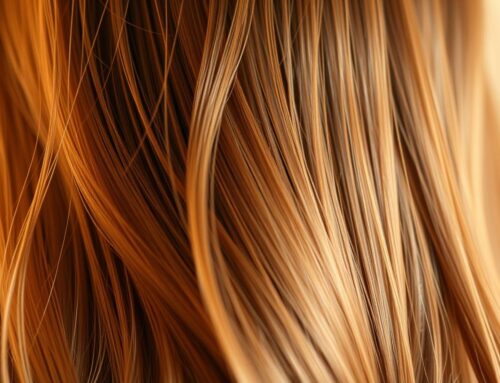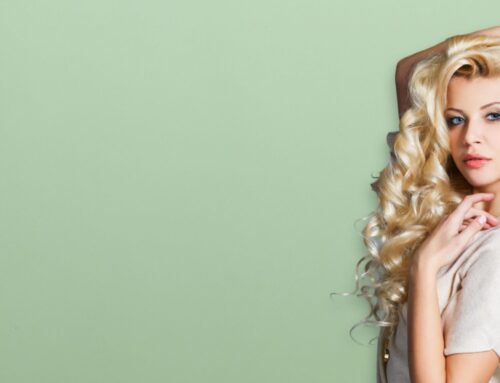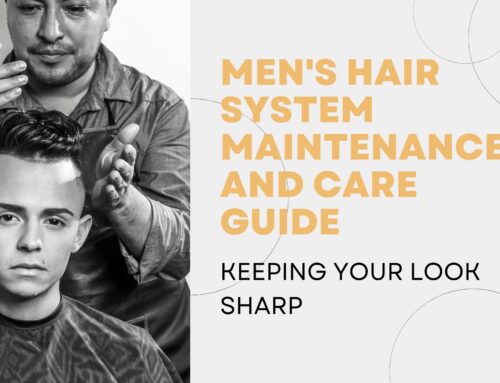Have you ever left a salon feeling frustrated with an itchy scalp?
It’s a common issue many face after a visit, leaving them wondering what went wrong.
Understanding the causes behind this discomfort is key. It could be a reaction to a product or irritation from a treatment. Knowing the root cause helps find the right remedy.
Let’s explore the possible reasons behind this issue. We’ll also look at how to alleviate the discomfort, addressing scalp itch effectively.
Key Takeaways
- Common causes of scalp irritation after a salon visit
- Effective remedies for itchy scalp relief
- Prevention tips for future salon visits
- How to identify allergic reactions to salon products
- When to seek professional help for persistent scalp issues
Why Your Scalp Itches After Visiting the Salon
An itchy scalp after a salon visit is more common than you might think. Understanding why it happens is key to finding relief. The scalp is a sensitive area, and various factors during a salon visit can trigger irritation.
The Science Behind Scalp Sensitivity
The scalp’s sensitivity is due to its complex structure. It has skin, hair follicles, and sebaceous glands. When exposed to certain chemicals or physical stressors during salon treatments, this sensitivity can be exacerbated, leading to irritation.
For instance, harsh chemicals in hair dyes or bleaching agents can strip the scalp of its natural oils. This causes dryness and itchiness.
Common Symptoms Beyond Itching
Beyond itchiness, individuals may experience a range of symptoms. These include redness, flakiness (often mistaken for dandruff), and even hair loss in severe cases. Some may notice their scalp feels tight or tender to the touch.
These symptoms can be uncomfortable. If not addressed, they may persist or worsen over time.
- Redness and inflammation
- Flakiness or dandruff
- Hair loss or thinning
- Tightness or tenderness of the scalp
How Long Post-Salon Irritation Typically Lasts
The duration of post-salon scalp irritation can vary significantly from person to person. In most cases, mild irritation may resolve on its own within a few days to a week with proper care.
More severe reactions can last longer. They may require specific treatments to alleviate symptoms and prevent long-term damage, such as dry scalp conditions.
To manage and potentially prevent prolonged irritation, it’s important to understand the causes. Taking proactive steps towards scalp care is key.
Chemical Culprits: Hair Products That Trigger Irritation
Chemical hair products at salons can cause scalp irritation. These treatments use strong chemicals for styling and color. But, they can harm the scalp.
Hair Dyes and Color Treatments
Hair dyes and color treatments often lead to scalp irritation. Paraphenylenediamine (PPD) in dyes can cause allergic reactions. Symptoms can range from mild redness to severe itching and burning.
“PPD is a known allergen that can cause significant reactions in sensitive individuals. It’s vital to patch test before applying any hair dye.”
Bleaching Agents and Lighteners
Bleaching agents and lighteners have harsh chemicals like ammonia and hydrogen peroxide. These can strip the hair and scalp of their natural oils. Overuse or improper application can make these issues worse.
Perming and Relaxing Solutions
Chemical treatments for perming and relaxing hair can also cause scalp irritation. These treatments break down the hair’s structure. If not applied correctly, they can damage the scalp. It’s essential to follow instructions carefully and consider professional help.
Knowing the chemical culprits behind scalp irritation is key. By understanding the irritants in hair products, we can protect our scalp health. This ensures a healthier scalp and more enjoyable salon experiences.
Understanding Itchy Scalp and Allergic Reactions
The itchy scalp after a salon visit is often not well understood. It’s important to know the difference between irritation and an allergic reaction. Both can be uncomfortable, but they have different causes and treatments.
Difference Between Irritation and True Allergies
Irritation and allergic reactions are two different things. Irritation is a non-immune response to products or treatments. It can be caused by many factors, like the product’s strength or your skin’s sensitivity.
An allergic reaction, on the other hand, is an immune response to a specific allergen. It’s more serious and can affect more of your body.
Irritation usually shows up as redness, itching, and burning, mainly where you applied the product. Allergic reactions can spread and be more severe. They might include hives, blisters, or even affect your whole body.
“Allergic contact dermatitis is a common condition associated with the use of hair dyes, mainly those with paraphenylenediamine (PPD). It’s a delayed-type hypersensitivity reaction that can cause significant scalp irritation.”
Common Allergens in Salon Products
Many salon products contain known allergens or irritants. These include:
- Paraphenylenediamine (PPD) in hair dyes
- Cocamidopropyl betaine in shampoos
- Preservatives like formaldehyde releasers
- Fragrances and dyes in various products
How to Identify if You’re Having an Allergic Reaction
To spot an allergic reaction, watch how your symptoms develop. Allergic reactions usually happen after repeated exposure and can be more serious than irritation. If you have intense itching, swelling, or trouble breathing, get medical help right away.
If you think your itchy scalp is from an allergic reaction, stop using the suspected products. Then, see a dermatologist for patch testing or advice.
Beyond Chemicals: Physical Causes of Scalp Irritation
Physical factors can also cause scalp discomfort, not just chemicals. Chemical reactions are often blamed, but physical causes play a big role too.
Tight Hairstyles and Tension Damage
Tight hairstyles like braids, ponytails, and buns can hurt your scalp. They can block blood flow and damage hair follicles. This might lead to traction alopecia. Choose looser hairstyles to avoid this.
Aggressive Brushing and Scalp Trauma
Brushing or combing too hard can hurt your scalp. It can cause micro-tears and even infections. Use soft brushes and wide-tooth combs to avoid damage. Be gentle, even when your hair is wet.
Hot Water and Heat Styling Effects
Hot water can dry out your scalp. It removes natural oils. Heat styling tools can also harm your hair and scalp. Use hot water less and protect your hair with heat sprays.
Being aware of these physical factors can help prevent scalp irritation. It keeps your scalp healthy.
Salon Shampoos and Conditioners: Hidden Irritants
Many people don’t know that salon products can cause scalp irritation. Salon shampoos and conditioners are meant to clean and moisturize hair. But, they can also have ingredients that irritate the scalp.
The scalp is very sensitive. Some ingredients in these products can cause mild irritation or even severe allergic reactions. It’s important to know what’s in these products to keep your scalp healthy.
Sulfates and Harsh Cleansers
Sulfates are in many shampoos because they clean well. But, they can also remove the scalp’s natural oils. This can make the scalp dry and irritated. If you have a sensitive scalp, try using sulfate-free shampoos instead.
| Sulfate Type | Common Name | Potential Irritation |
| Sodium Lauryl Sulfate | SLS | High irritation |
| Sodium Laureth Sulfate | SLES | Moderate irritation |
Fragrance and Preservative Reactions
Fragrances and preservatives in shampoos and conditioners can also irritate the scalp. Fragrances can cause allergic reactions, and preservatives like parabens can irritate the skin and cause health problems.
“The key to avoiding irritation is to choose products with simpler ingredient lists and to always patch test new products.”
– Dermatologist Advice
pH Imbalance and Scalp Barrier Disruption
The scalp’s natural pH is slightly acidic. Using products that are too alkaline can upset this balance. This can cause irritation and damage the scalp’s barrier function. It’s important to use pH-balanced products for the scalp.
To effectively treat the scalp, be careful with the products used during and after salon visits. Knowing the irritants in salon shampoos and conditioners helps protect scalp health. This can prevent problems like a flaky scalp.
Immediate Relief: First Aid for Your Itchy Scalp
An itchy scalp after a salon visit is more than just annoying. It’s a sign that something’s wrong. Whether it’s from dye, keratin, or a simple trim, an itchy scalp can be really frustrating. Luckily, there are quick fixes to soothe your scalp and ease the itch.
Cooling and Soothing Rinses
One easy way to calm an itchy scalp is with a cooling rinse. Apple cider vinegar and cool water mixed together can balance your scalp’s pH and lessen itchiness. You can also try a tea tree oil rinse. It’s known for its antifungal and antibacterial properties, which can soothe irritation.
- Mix 1 part apple cider vinegar with 2 parts water as a final rinse after shampooing.
- Add a few drops of tea tree oil to your shampoo or use it as a leave-in treatment.
Anti-Inflammatory Treatments
For severe itchiness, anti-inflammatory treatments can offer quick relief. Over-the-counter creams or lotions with hydrocortisone can be effective. For a natural option, aloe vera gel can be applied directly to the affected area. It’s known for its soothing properties.
Natural Remedies That Actually Work
There are also natural remedies that can help. Coconut oil is moisturizing and has anti-inflammatory properties to soothe an itchy scalp. Oatmeal baths or masks can also help by reducing inflammation and itching.
- Apply coconut oil to your scalp and leave it on for at least an hour before washing.
- Use an oatmeal bath or make a paste with oatmeal and water to apply directly to your scalp.
By using these quick relief measures, you can get rid of the itchiness. This way, you can enjoy the results of your salon visit without the annoyance of itchiness.
Long-Term Solutions: Healing Your Damaged Scalp
Healing a damaged scalp takes time and the right steps. After irritation from a salon visit, it’s key to use a detailed scalp care plan. This plan should help heal and prevent future damage.
Restoring Your Scalp’s Natural Barrier
The scalp’s natural barrier protects it from harm. To fix it, use gentle, nourishing treatments. Choose a sulfate-free shampoo and a conditioner for damaged scalps. Also, add a scalp serum with tea tree oil or aloe vera to soothe and repair.
Dr. Joshua Zeichner, a New York dermatologist, says, “A healthy scalp is essential for healthy hair. The right products are vital for scalp health.”
Best Products for Post-Salon Recovery
Choosing the right products is key for post-salon recovery. Look for gentle, chemical-free options. Products with ceramides or niacinamide help repair the scalp. Also, pick products with anti-inflammatory ingredients like salicylic acid or chamomile.
- Gentle, sulfate-free shampoos
- Conditioners with nourishing ingredients like argan oil or coconut oil
- Scalp serums with tea tree oil or peppermint
Dietary Changes That Support Scalp Health
Your diet affects your scalp health. Eating foods rich in vitamins and minerals helps scalp recovery. Foods with omega-3 fatty acids, zinc, and vitamin E are good. Drinking plenty of water is also important to avoid dry scalp and irritation.
“A healthy diet shows in your scalp and hair health. Nutrients are key for scalp integrity.”
– Dr. Whitney Bowe, Dermatologist
Using the right products, eating well, and gentle scalp care can heal your scalp for the long term.
Prevention Strategies: Protecting Your Scalp During Future Salon Visits
To protect your scalp at future salon visits, prepare well, communicate clearly, and care for your scalp after. These steps help prevent irritation and keep your scalp healthy.
Pre-Treatment Preparations
Before going to the salon, prepare your scalp. Tell your stylist about any hair product or treatment reactions you’ve had. This helps them pick the right products for you. Also, do a patch test for new chemical treatments to avoid bad reactions.
Effective Communication With Your Stylist
Talking clearly with your stylist is key. Share your concerns and any scalp sensitivities. Ask about the products’ ingredients and if there are safer options. Speak up if you feel any discomfort during the treatment.
Post-Salon Care Routines
After your salon visit, follow a good care routine to prevent irritation. Use gentle, sulfate-free shampoos and conditioners that match your scalp type. Stay away from hot water and limit heat styling tools. Keeping your scalp moisturized also helps its health.
| Prevention Strategy | Description | Benefits |
| Pre-Treatment Patch Test | Conduct a patch test before applying new chemical treatments. | Helps identify possible allergens or irritants. |
| Clear Communication | Inform your stylist about previous reactions and concerns. | Ensures the use of suitable products and treatments. |
| Gentle Post-Salon Care | Use gentle shampoos and conditioners, avoid hot water, and minimize heat styling. | Reduces irritation risk and keeps your scalp healthy. |
By using these prevention strategies, you can greatly lower scalp irritation risk. This leads to healthier, more resilient hair.
When to Seek Professional Help for Scalp Issues
It’s important to know when your scalp problems are more than just irritation. Some discomfort after a salon visit is normal. But, if you notice serious symptoms, you need expert help.
Warning Signs of Serious Reactions
Keep an eye on your scalp after a salon treatment. Severe itching, burning, or pain that doesn’t go away is a bad sign. Also, watch for visible redness, swelling, or rash on your scalp.
- Persistent itching or burning sensation
- Visible signs of inflammation or infection
- Unusual hair loss or breakage
Finding the Right Specialist: Dermatologist vs. Trichologist
Choosing between a dermatologist or a trichologist can be tricky. Dermatologists deal with skin issues, including scalp problems. Trichologists focus on hair and scalp disorders, giving specialized care for hair issues.
| Specialist | Area of Expertise | Services Offered |
| Dermatologist | Skin conditions, including scalp | Medical treatments, diagnoses |
| Trichologist | Hair and scalp disorders | Specialized hair and scalp care |
Medical Treatments for Chemical Scalp Damage
For chemical scalp damage, there are medical treatments that can help. These include topical corticosteroids to reduce inflammation. Also, antifungal or antibacterial medications for infections and medicated shampoos to soothe and repair the scalp.
Knowing when to get professional help is vital for scalp care. By spotting warning signs and picking the right specialist, you can get your scalp the care it needs.
Conclusion: Balancing Beauty Treatments and Scalp Health
Keeping your scalp healthy is key, even when you’re getting beauty treatments. An itchy scalp can be really annoying and uncomfortable. But, knowing what causes it and taking steps to prevent it can help a lot.
Being mindful of hair product irritants and gentle scalp care can help. Also, talking to your stylist about your scalp needs is important. Simple steps like using sulfate-free shampoos and avoiding too much heat styling can really help your scalp stay healthy.
Scalp care is more than just stopping itchiness. It’s about keeping your scalp in top shape. This way, you can enjoy your favorite beauty treatments without worrying about your scalp. Focus on scalp care to look and feel your best.
FAQ
What are the most common causes of an itchy scalp after a salon visit?
Chemicals in hair dyes and bleaching can cause irritation. So can harsh salon shampoos and conditioners. Ingredients like sulfates and fragrances are often culprits.
How can I differentiate between scalp irritation and an allergic reaction?
Irritation is a reaction to a product. An allergic reaction involves your immune system. Both can cause redness and itching. But, an allergic reaction might also bring hives or blisters.
What are some immediate relief measures for an itchy scalp?
Try cooling rinses or anti-inflammatory treatments. Natural remedies like tea tree oil or aloe vera can also help soothe your scalp.
How can I prevent scalp irritation during future salon visits?
Prepare your scalp before going to the salon. Talk to your stylist about your sensitivity. Follow good care routines after your visit to avoid irritation.
Are there any dietary changes that can support scalp health?
Yes, eating foods rich in omega-3s, zinc, and vitamin B can help. These nutrients support scalp health and may reduce irritation.
When should I seek professional help for scalp issues?
If your symptoms are severe or last a long time, see a dermatologist or trichologist. They can help figure out what’s wrong and treat it.
Can dandruff or dry scalp be a sign of an underlying issue after a salon visit?
Yes, dandruff or a dry scalp might mean irritation or an allergic reaction. You might need special care and treatment.
What are some recommended products for post-salon recovery and scalp care?
Use gentle, sulfate-free shampoos and conditioners. Look for products with soothing ingredients like aloe vera or tea tree oil. They can calm and nourish your scalp.




